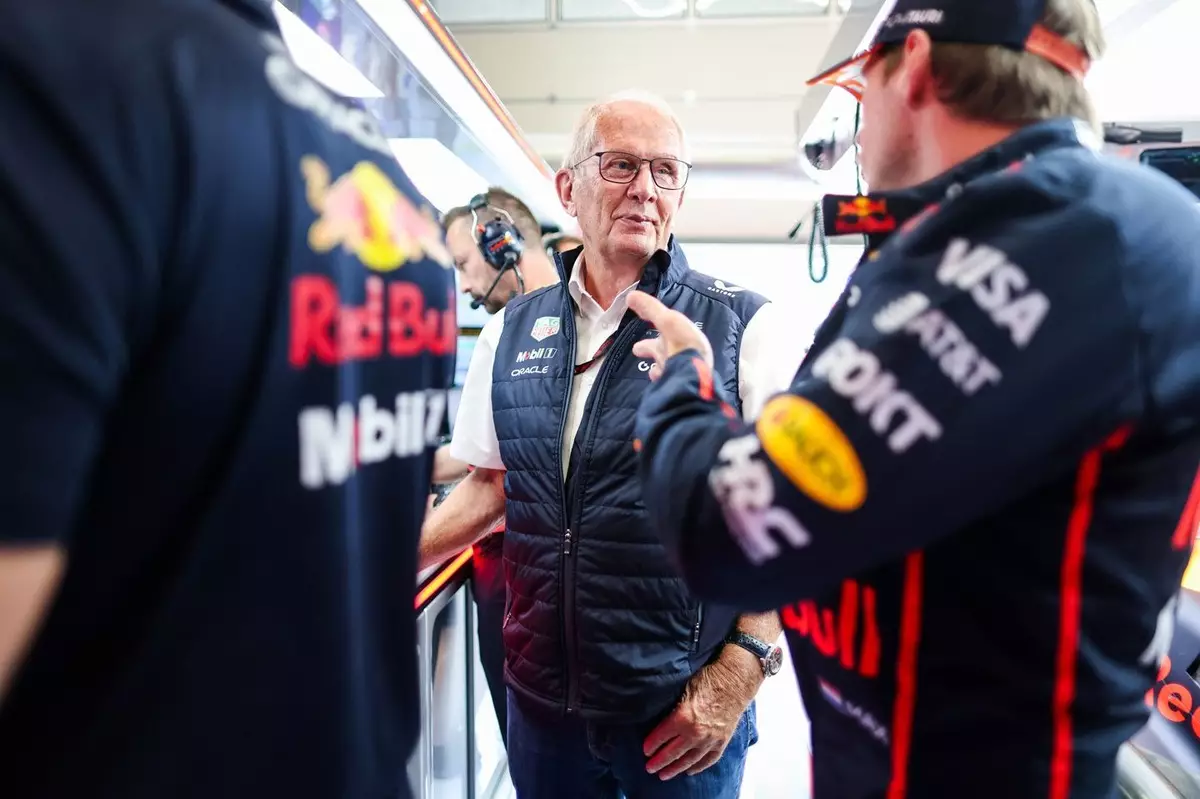The recent trajectory of Max Verstappen’s career is signaling more than just a temporary dip in performance; it reflects a complex interplay of confidence, contractual nuances, and the pressures of relentless competition. Verstappen, a four-time world champion, has long been associated with Red Bull’s dominant era in Formula 1. Yet, a series of underwhelming results—including his disappointing exit at the Austrian Grand Prix—raises critical questions about the stability of their partnership. A race that once showcased Red Bull’s supremacy now feels like a cautionary tale, highlighting vulnerabilities in a squad that once seemed invincible.
Verstappen’s crash in Austria, due to a rookie Mercedes driver and a series of misfortunes, epitomizes a rare stumble in his otherwise stellar career. The fact that this race ended Red Bull’s remarkable 77-race points streak underscores an unsettling reality: even giants are susceptible to lapses. Amid the chaos, Verstappen’s disengagement—switching focus to the Spa 24 Hours to watch his GT team’s success—signifies a deeper disconnect, perhaps fueled by frustration and a sense of unfulfilled potential. His recent dry spell in victories and dwindling points lead to a narrative far from the confident champion image he’s cultivated; instead, it probes whether internal pressures and internal doubts are beginning to show.
The Question of Loyalty and Contractual Guarantees
Despite the turbulence, Red Bull’s key figure Helmut Marko offers a reassuring stance. His words—that Verstappen’s contract runs until 2028 and that there are performance-based exit clauses—are meant to quell rumors of imminent departure. However, a critical examination reveals that such contractual language is often a double-edged sword in high-stakes sports. It theoretically provides a safety net for both parties, but in reality, it could become a battlefield of negotiations should performance decline or mutual dissatisfaction escalate.
What stands out is Marko’s admission that he doesn’t recall the specifics of these exit clauses—an indication of how complex and possibly ambiguous they might be. This lack of clarity could open doors to speculation, especially if Verstappen perceives himself as no longer aligned with the team’s trajectory or if external offers present tempting alternatives. The mere mention of such clauses, without transparency, feeds into the narrative that Verstappen’s loyalty might not be absolute.
The Silent Signals: Verstappen’s Cryptic Responses and Lingering Uncertainty
Verstappen’s own words in Austria—“I don’t think we need to talk about that”—are a masterclass in ambiguity. When asked about his future with Red Bull, his reluctance to confirm or deny any plans immediately signals that internal tensions or at least strategic ambiguity might be at play. His refusal to reaffirm his commitment signals an awareness that his own perception of the team’s competitiveness might be wavering.
This cryptic stance aligns with a broader pattern among elite athletes facing pressures that extend beyond the race track. Drivers of Verstappen’s caliber often have their futures intertwined with team performance, manufacturer prestige, and personal ambitions. If recent results continue to decline, the psychological toll could serve as a catalyst for reevaluation—either internally within Red Bull or for Verstappen himself.
Implications for Future F1 Seasons
The current situation reveals a team at a crossroads. Red Bull’s investment in Verstappen was predicated on a shared vision of unassailable dominance. Yet, that vision is now shaded by doubts—about performance, motivation, and loyalty. As Verstappen remains in his contract until 2028, the narrative of a possible departure isn’t imminent but is undeniably lurking as a potential plot twist in F1’s ongoing saga.
If the Dutch driver perceives that the team cannot deliver high-caliber cars or consistent victories, he might entertain options outside of Red Bull. Conversely, if the team revamps its approach and restores their competitive edge, Verstappen could reaffirm his legendary status within the squad. However, the uncertainty surrounding their relationship introduces a palpable tension into what should be a period of stability.
The enduring question is whether Red Bull can navigate this slump by reinvigorating the team spirit and performance or if Verstappen’s own ambitions might drive him to seek a fresh challenge elsewhere. One thing remains clear: in Formula 1, loyalty is often as fragile as a tire on the edge of a race-winning lap, and the coming races will be pivotal in determining which path the Dutch star and his team will choose to follow.


Leave a Reply